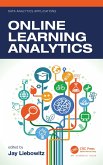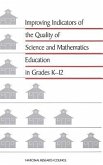Educational Research
An African Approach
Herausgeber: Okeke, Chinedu; Wyk, Michael van
Schade – dieser Artikel ist leider ausverkauft. Sobald wir wissen, ob und wann der Artikel wieder verfügbar ist, informieren wir Sie an dieser Stelle.
Educational Research
An African Approach
Herausgeber: Okeke, Chinedu; Wyk, Michael van
- Broschiertes Buch
- Merkliste
- Auf die Merkliste
- Bewerten Bewerten
- Teilen
- Produkt teilen
- Produkterinnerung
- Produkterinnerung
This is a comprehensive text offering a solid theoretical foundation in all the basic rudiments of research within the discipline of Teacher Education.
Andere Kunden interessierten sich auch für
![Social Hegemony and Educational Inequality: Problems of Ideology and Knowledge in Educational History Texts Social Hegemony and Educational Inequality: Problems of Ideology and Knowledge in Educational History Texts]() Joe A. StornelloSocial Hegemony and Educational Inequality: Problems of Ideology and Knowledge in Educational History Texts24,99 €
Joe A. StornelloSocial Hegemony and Educational Inequality: Problems of Ideology and Knowledge in Educational History Texts24,99 €![Online Learning Analytics Online Learning Analytics]() Online Learning Analytics90,99 €
Online Learning Analytics90,99 €![Improving Indicators of the Quality of Science and Mathematics Education in Grades K-12 Improving Indicators of the Quality of Science and Mathematics Education in Grades K-12]() National Research CouncilImproving Indicators of the Quality of Science and Mathematics Education in Grades K-1262,99 €
National Research CouncilImproving Indicators of the Quality of Science and Mathematics Education in Grades K-1262,99 €![Educational Dramatics Educational Dramatics]() Emma Sheridan FryEducational Dramatics15,99 €
Emma Sheridan FryEducational Dramatics15,99 €![The Duties of Men Engaged as Physical Directors or Athletic Coaches in High Schools; Bureau of educational research. Bulletin no. 30 The Duties of Men Engaged as Physical Directors or Athletic Coaches in High Schools; Bureau of educational research. Bulletin no. 30]() Walter Scott MonroeThe Duties of Men Engaged as Physical Directors or Athletic Coaches in High Schools; Bureau of educational research. Bulletin no. 3014,99 €
Walter Scott MonroeThe Duties of Men Engaged as Physical Directors or Athletic Coaches in High Schools; Bureau of educational research. Bulletin no. 3014,99 €![The Education Of Migrant Children A Study Of The Educational Opportunities And Experiences Of The Children Of Agricultural Migrants The Education Of Migrant Children A Study Of The Educational Opportunities And Experiences Of The Children Of Agricultural Migrants]() Shirley E. GreeneThe Education Of Migrant Children A Study Of The Educational Opportunities And Experiences Of The Children Of Agricultural Migrants18,99 €
Shirley E. GreeneThe Education Of Migrant Children A Study Of The Educational Opportunities And Experiences Of The Children Of Agricultural Migrants18,99 €![Educational Psychology: Mental Work and Fatique and Individual Differences and Their Causes Educational Psychology: Mental Work and Fatique and Individual Differences and Their Causes]() Edward Lee ThorndikeEducational Psychology: Mental Work and Fatique and Individual Differences and Their Causes24,99 €
Edward Lee ThorndikeEducational Psychology: Mental Work and Fatique and Individual Differences and Their Causes24,99 €-
-
-
This is a comprehensive text offering a solid theoretical foundation in all the basic rudiments of research within the discipline of Teacher Education.
Produktdetails
- Produktdetails
- Verlag: Oxford University Press, USA
- Seitenzahl: 616
- Erscheinungstermin: 1. Dezember 2015
- Englisch
- Abmessung: 236mm x 168mm x 36mm
- Gewicht: 907g
- ISBN-13: 9780190409135
- ISBN-10: 0190409134
- Artikelnr.: 43366831
- Herstellerkennzeichnung
- Libri GmbH
- Europaallee 1
- 36244 Bad Hersfeld
- gpsr@libri.de
- Verlag: Oxford University Press, USA
- Seitenzahl: 616
- Erscheinungstermin: 1. Dezember 2015
- Englisch
- Abmessung: 236mm x 168mm x 36mm
- Gewicht: 907g
- ISBN-13: 9780190409135
- ISBN-10: 0190409134
- Artikelnr.: 43366831
- Herstellerkennzeichnung
- Libri GmbH
- Europaallee 1
- 36244 Bad Hersfeld
- gpsr@libri.de
* Part 1: The philosophy of research
* 1: Afrocentricity as a research methodology
* 2: Positivism and interpretivism: Distinguishing characteristics,
criteria and methodology
* 3: Interpretive research: Construction of meanings
* 4: Critical research: Understanding material constraints and engaging
in transformative action research
* 5: Developing sensitivity in questions of gender, using feminist
research and IKS principles
* 6: Objectivity, values and subjectivity: Issues of values and ethics
in the research process
* 7: Ethics in human sciences research
* Part 2: Planning, designing and conducting educational research
* 8: The literature review
* 9: Steps in the research process
* 10: Research design
* 11: How researchers define and measure variables
* 12: Achieving qualitative validity, reliability and generalisability
* 13: The logic of sampling
* 14: Survey research methods
* 15: Experimental methods and data collection
* 16: The observation method
* 17: The interview method
* 18: The questionnaire approach
* 19: The focus group discussion method
* 20: Using secondary sources of data
* 21: The pilot study
* Part 3: Analysing fieldwork data
* 22: Quantitative data analysis: Descriptive statistics
* 23: Quantitative data analysis: Inferential statistics
* 24: Application of the statistical package for the social sciences
(SPSS)
* 25: Qualitative data analysis
* Part 4: Reporting and disseminating research findings
* 26: Presentation of quantitative research reports
* 27: Presentation of qualitative research findings
* 28: Plagiarism: Causes, consequences and preventive strategies
* 29: Essentials of academic writing
* 30: Writing for publication: Sharpening your academic writing skills
* 1: Afrocentricity as a research methodology
* 2: Positivism and interpretivism: Distinguishing characteristics,
criteria and methodology
* 3: Interpretive research: Construction of meanings
* 4: Critical research: Understanding material constraints and engaging
in transformative action research
* 5: Developing sensitivity in questions of gender, using feminist
research and IKS principles
* 6: Objectivity, values and subjectivity: Issues of values and ethics
in the research process
* 7: Ethics in human sciences research
* Part 2: Planning, designing and conducting educational research
* 8: The literature review
* 9: Steps in the research process
* 10: Research design
* 11: How researchers define and measure variables
* 12: Achieving qualitative validity, reliability and generalisability
* 13: The logic of sampling
* 14: Survey research methods
* 15: Experimental methods and data collection
* 16: The observation method
* 17: The interview method
* 18: The questionnaire approach
* 19: The focus group discussion method
* 20: Using secondary sources of data
* 21: The pilot study
* Part 3: Analysing fieldwork data
* 22: Quantitative data analysis: Descriptive statistics
* 23: Quantitative data analysis: Inferential statistics
* 24: Application of the statistical package for the social sciences
(SPSS)
* 25: Qualitative data analysis
* Part 4: Reporting and disseminating research findings
* 26: Presentation of quantitative research reports
* 27: Presentation of qualitative research findings
* 28: Plagiarism: Causes, consequences and preventive strategies
* 29: Essentials of academic writing
* 30: Writing for publication: Sharpening your academic writing skills
* Part 1: The philosophy of research
* 1: Afrocentricity as a research methodology
* 2: Positivism and interpretivism: Distinguishing characteristics,
criteria and methodology
* 3: Interpretive research: Construction of meanings
* 4: Critical research: Understanding material constraints and engaging
in transformative action research
* 5: Developing sensitivity in questions of gender, using feminist
research and IKS principles
* 6: Objectivity, values and subjectivity: Issues of values and ethics
in the research process
* 7: Ethics in human sciences research
* Part 2: Planning, designing and conducting educational research
* 8: The literature review
* 9: Steps in the research process
* 10: Research design
* 11: How researchers define and measure variables
* 12: Achieving qualitative validity, reliability and generalisability
* 13: The logic of sampling
* 14: Survey research methods
* 15: Experimental methods and data collection
* 16: The observation method
* 17: The interview method
* 18: The questionnaire approach
* 19: The focus group discussion method
* 20: Using secondary sources of data
* 21: The pilot study
* Part 3: Analysing fieldwork data
* 22: Quantitative data analysis: Descriptive statistics
* 23: Quantitative data analysis: Inferential statistics
* 24: Application of the statistical package for the social sciences
(SPSS)
* 25: Qualitative data analysis
* Part 4: Reporting and disseminating research findings
* 26: Presentation of quantitative research reports
* 27: Presentation of qualitative research findings
* 28: Plagiarism: Causes, consequences and preventive strategies
* 29: Essentials of academic writing
* 30: Writing for publication: Sharpening your academic writing skills
* 1: Afrocentricity as a research methodology
* 2: Positivism and interpretivism: Distinguishing characteristics,
criteria and methodology
* 3: Interpretive research: Construction of meanings
* 4: Critical research: Understanding material constraints and engaging
in transformative action research
* 5: Developing sensitivity in questions of gender, using feminist
research and IKS principles
* 6: Objectivity, values and subjectivity: Issues of values and ethics
in the research process
* 7: Ethics in human sciences research
* Part 2: Planning, designing and conducting educational research
* 8: The literature review
* 9: Steps in the research process
* 10: Research design
* 11: How researchers define and measure variables
* 12: Achieving qualitative validity, reliability and generalisability
* 13: The logic of sampling
* 14: Survey research methods
* 15: Experimental methods and data collection
* 16: The observation method
* 17: The interview method
* 18: The questionnaire approach
* 19: The focus group discussion method
* 20: Using secondary sources of data
* 21: The pilot study
* Part 3: Analysing fieldwork data
* 22: Quantitative data analysis: Descriptive statistics
* 23: Quantitative data analysis: Inferential statistics
* 24: Application of the statistical package for the social sciences
(SPSS)
* 25: Qualitative data analysis
* Part 4: Reporting and disseminating research findings
* 26: Presentation of quantitative research reports
* 27: Presentation of qualitative research findings
* 28: Plagiarism: Causes, consequences and preventive strategies
* 29: Essentials of academic writing
* 30: Writing for publication: Sharpening your academic writing skills








